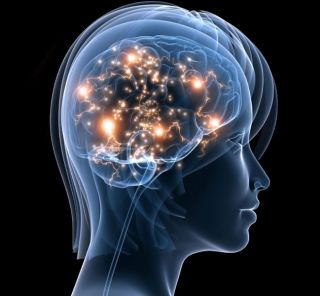Intelligence
Can Physical Activities Improve Fluid Intelligence?
Scientists link aerobic fitness with improved cognition in healthy young adults.
Posted December 13, 2013

Researchers at Boston University School of Medicine (BUSM) have found more evidence that physical activity is beneficial for brain health and cognition. The findings were published December 2, 2013 online in Behavioural Brain Research. The new study suggests that certain hormones, which are increased during exercise, may help improve memory.
For this study, the researchers recruited healthy young adults and measured blood hormone levels. Then they tested each individual's performance on a recognition memory task along with his or her level of aerobic fitness. The researchers were able to correlate blood hormone levels with aerobic fitness, and identify positive effects on memory function.
Hormones called “growth factors” are released when we exercise and have been directly linked to improved brain health. The hippocampus, a region of the brain crucial for learning and memory, is thought to benefit directly from these hormones.
In another study released in October 2013, Dr. Bruce Spiegelman of the Dana-Farber Cancer Institute and Harvard Medical School reported that a molecule called FNDC5 and its byproduct, irisin, become elevated in the brain through endurance exercise.
Spiegelman and his team also found that raising levels of irisin in the circulation caused the molecule to cross the blood brain barrier, which then increased the expression of BDNF (brain-derived neurotrophic factor) and activated genes involved in cognition. I wrote a Psychology Today blog post about this study titled, "Scientists Discover Why Exercise Makes You Smarter."
Increasing BDNF has long been known to stimulate neurogenesis (the growth of new neurons) in anyone who does regular aerobic exercise. On pages 97-98 of The Athlete’s Way I write: “According to Ronald Duman, Ph.D. at Yale University, chronic stress, anxiety, and depression have been linked to atrophy or loss of neurons, and exercise has been linked to the growth of new neurons. The primary hormone triggered during the degeneration of neurons seems to be cortisol, which appears to shrink the hippocampus."

The new BUSM study honed in on three specific growth factors: brain-derived neurotrophic factor (BDNF), vascular endothelial growth factor (VEGF), and insulin-like growth factor-1 (IGF-1), which have been implicated in the link between exercise and improved hippocampal function.
According to the researchers, BDNF and aerobic fitness predicted improved memory. A low level of fitness was reflected in lower BDNF levels and was linked to lower memory accuracy. Those with a high level of fitness had increased resting BDNF levels had better recognition memory.
"We will be continuing this line of research by testing if memory improves following an exercise training program in both young and geriatric adults, and by adding brain imaging techniques," explained Karin Schon, PhD, assistant professor of anatomy and neurobiology at BUSM, who served as the study's principal investigator.
The Link Between Non-Academic Activities and Fluid Intelligence
Although, there is some controversy and debate on the best ways to improve fluid intelligence, common sense would suggest that non-academic pursuits—including aerobic exercise—are key to improving not only cognition but someone's long-term success in life. I have written a wide range of Psychology Today blog posts that link—physical activity, playing a musical instrument, making art, improving motor skills, and getting a good night's sleep—with optimizing brain function and improving cognitive abilities.
In another new study released on December 11, 2013, Massachusetts Institute of Technology neuroscientists working with education researchers at Harvard University and Brown University found that students at academically high-performing schools did not necessarily have improved fluid intelligence.

Fluid intelligence is the capacity to think logically and solve problems in novel situations, independent of acquired knowledge. Fluid intelligence involves the ability to identify patterns and relationships that underpin novel problems and to extrapolate these findings using logic.
On the other hand, crystallized intelligence is the ability to utilize skills, knowledge, and experience. Crystallized intelligence represents your lifetime of intellectual achievement, as demonstrated largely through one's vocabulary and general explicit knowledge that could be measured on a standardized test.
Interestingly, schools where students have had the highest gains on test scores do not show similar gains in fluid intelligence, according to the new study. In fact, those schools with high scores on crystallized intelligence tests had almost no effect on students' performance on tests of fluid intelligence skills, such as working memory capacity, speed of information processing, and ability to solve abstract problems.

The researchers found that educational practices designed to raise knowledge and boost test scores do not improve fluid intelligence. "It doesn't seem like you get these skills for free in the way that you might hope, just by doing a lot of studying and being a good student," says John Gabrieli, who is a neuroscientist and professor of brain and cognitive sciences at MIT.
Gabrieli and his team are curious to discover how the healthy brain supports human capacities, such as hippocampal support for explicit memory, amygdala support for emotional memory, and prefrontal cortical support for working memory. They also study how life experience alters functional brain organization via brain plasticity. Their goal is to understand principles of brain organization that are consistent across individuals, and those that vary across people due to age, personality, and other dimensions of individuality.
This December 2013 study, which was funded by the Bill and Melinda Gates Foundation and National Institutes of Health, grew out of a larger effort to look beyond standardized tests to discover other factors that can predict long-term success for students. "As we started that study, it struck us that there's been surprisingly little evaluation of different kinds of cognitive abilities and how they relate to educational outcomes," Gabrieli says.

To evaluate school quality, states require students to take standardized tests; in many cases, passing those tests is necessary to receive a high-school diploma. These high-stakes tests have also been shown to predict students' future educational attainment and adult employment and income. Such tests are designed to measure the crystallized intelligence, knowledge, and skills that students have acquired in school.
"Our original question was this: If you have a school that's effectively helping kids from lower socioeconomic environments by moving up their scores and improving their chances to go to college, then are those changes accompanied by gains in additional cognitive skills?" says Gabrieli.
The researchers calculated how much of the variation in MCAS scores was due to the school that students attended. For MCAS scores in English, schools accounted for 24 percent of the variation, and they accounted for 34 percent of the math MCAS variation. However, the schools accounted for very little of the variation in fluid cognitive skills—less than 3 percent for all three skills combined.
In one example of a test of fluid reasoning, students were asked to choose which of six pictures completed the missing pieces of a puzzle—a task requiring integration of information such as shape, pattern, and orientation. "It's not always clear what dimensions you have to pay attention to get the problem correct. That's why we call it fluid, because it's the application of reasoning skills in novel contexts," says Amy Finn, an MIT postdoc and lead author of the paper.
Conclusion: Focus on Boosting Both Crystallized and Fluid Intelligence
"What's nice about this study is it seems to narrow down the possibilities of what educational interventions are achieving," says Daniel Willingham, a professor of psychology at the University of Virginia who was not part of the research team. "We're usually primarily concerned with outcomes in schools, but the underlying mechanisms are also important."

Activities like playing chess may improve fluid intelligence.
Gabrieli concludes, "Schools can improve crystallized abilities, and now it might be a priority to see if there are some methods for enhancing the fluid ones as well." He hopes these findings will encourage educators and policymakers to consider adding practices that enhance a broad range of cognitive skills. Although many studies have shown that students' fluid cognitive skills influence overall academic performance and life success, these skills are seldom explicitly taught.
The researchers plan to continue tracking these students, who are now in 10th grade, to see how their academic performance and other life outcomes evolve. The researchers have also begun a new study of high school seniors to track how their standardized test scores and cognitive abilities influence their rates of college attendance and graduation.
Researchers around the world are trying to put the puzzle pieces together on the best ways to maintain and improve cognitive function throughout an individual's lifespan. Some studies have found that educational programs that focus on improving memory, attention, executive function, and inductive reasoning can boost fluid intelligence, but there is heated debate over what programs are consistently effective.
Please stay tuned for future studies which will most likely confirm more specifics on non-academic pursuits that can improve fluid intelligence throughout a lifespan.
If you’d like to read more on this topic, check out my Psychology Today blog posts:
- “Hand-Eye Coordination Improves Cognitive and Social Skills”
- “Childhood Creativity Leads to Innovation in Adulthood”
- “Musical Training Optimizes Brain Function”
- “Better Motor Skills Linked to Higher Test Scores”
- “Video Gaming Can Increase Brain Connectivity”
- “How Does Daydreaming Help Form Long Lasting Memories?”
- “Tongue Twisters Reveal Quirky Brain Functions”
- “The Mysterious Neuroscience of Learning Automatic Skills”
- “How Does the Brain Remember the Places of Your Past?”
- “Sleep Strengthens Healthy Brain Connectivity”
- “One More Reason to Unplug Your Television”
Follow me on Twitter @ckbergland for updates on The Athlete’s Way blog posts.




